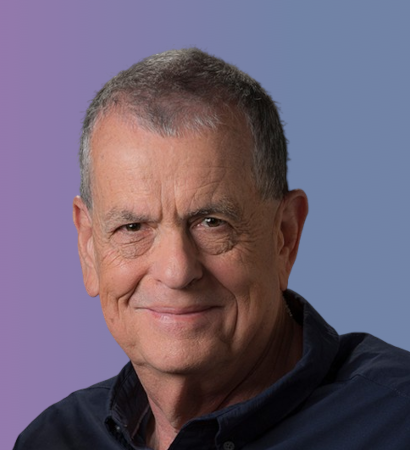
Prof. Aaron Ciechanover
The Rappaport Family Technion Integrated Cancer Centre (TICC), Technion-IIT, Haifa, Israel
Prof. Aaron Ciechanover is one of Israel's first Nobel Laureates in science, earning his Nobel Prize in 2004 for his work in ubiquitination. He is honoured for playing a central role in the history of Israel and in the history of the Technion – Israel Institute of Technology. Prof. Aaron Ciechanover obtained his MSc (1971) and M.D. (1973) from the Hebrew University in Jerusalem. He then completed his national service (1973-1976) as military physician, and continued his studies to obtain a doctorate in biological sciences in the Faculty of Medicine in the Technion (D.Sc.; 1982). There, as a graduate student with Dr. Avram Hershko and in collaboration with Dr. Irwin A. Rose from the Fox Chase Cancer Centre in Philadelphia, USA, they discovered that covalent attachment of ubiquitin to a target protein signals it for degradation. They deciphered the mechanism of conjugation, described the general proteolytic functions of the system, and proposed a model according to which this modification serves as a recognition signal for a specific downstream protease. As a post- doctoral fellow with Dr. Harvey Lodish at the M.I.T., he continued his studies on the ubiquitin system and made additional important discoveries. For this phenomenal discovery he along with Dr. Avram Hershko and Dr. Irwin A. Rose were awarded Nobel Prize in Chemistry in 2004. He is currently a Distinguished Research Professor in the Faculty of medicine at the Technion – Israel Institute of Technology in Haifa, Israel. He is a member of the Israel Academy of Sciences and Humanities, the Pontifical Academy of Sciences, the National Academy of Sciences of Ukraine, the Russian Academy of Sciences and is a foreign associate of the United States National Academy of Sciences. In 2008, he was a visiting Distinguished Chair Professor at NCKU, Taiwan. As part of Shenzhen's 13th Five-Year Plan funding research in emerging technologies and opening "Nobel laureate research labs", in 2018 he opened the Ciechanover Institute of Precision and Regenerative Medicine at the Chinese University of Hong Kong, Shenzhen campus. know more
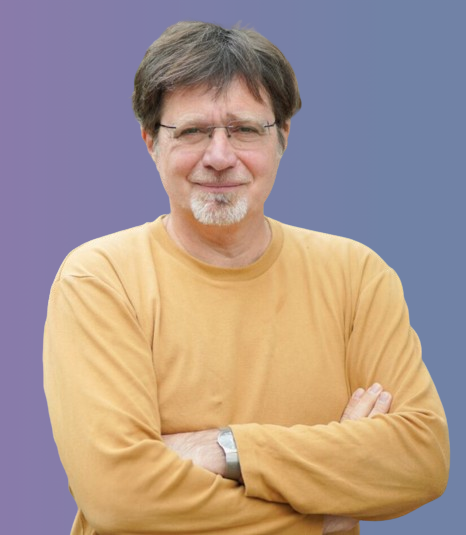
Prof. Michael Glickman
Faculty of Biology, Technion – IIT, Haifa, Israel
Prof. Michael Glickman studied chemistry at Hebrew University in Jerusalem, Israel and obtained his PhD degree from the University of California at Berkeley in 1994. From there he went to Harvard Medical School in Boston to work on the field of Proteostasis with Prof. Dan Finley. Prof. Glickman is internationally renowned for his various pioneering research on ubiquitin-proteasome system (UPS), an important mediator of cellular protein turnover, also involved in diseases such as Huntington's, Alzheimer's, and Parkinson's. Currently Prof. Glickman is the department head at Technion and recently he received the ERC advanced grant 2024 and continuing his research on ubiquitin signaling in neurological disorders, functions of various Proteasome forms and deubiquitinases (DUBs) in mammalian cells.. know more

Prof. David Komander
Walter and Eliza Hall Institute of Medical Research (WEHI), Australia
Prof. David Komander is a prominent biochemist and structural biologist, known for his significant contributions to the field of ubiquitination. His career has significantly advanced the understanding of the ubiquitin system, which is crucial for various cellular processes, including protein degradation, signaling, and regulation of the immune response. Prof. Komander completed his training in Germany and the UK, focusing on structural biology and biochemistry. He made significant contributions while at the Medical Research Council (MRC) Laboratory of Molecular Biology in Cambridge, UK. During his time at Cambridge, he discovered and named the enzyme OTULIN, which regulates immune response and inflammation, leading to the identification of OTULIN-related autoinflammatory syndrome (ORAS). He is the Division Head at the Walter and Eliza Hall Institute of Medical Research (WEHI) in Australia and was recently elected as a Fellow of the Royal Society in recognition of his outstanding research achievements. He is also a member of the European Molecular Biology Organization (EMBO) and the Lister Institute.know more

Dr. Carlos Castaneda
Syracuse University, New York, United States
Dr. Carlos A. Castaneda is an assistant professor of Biology and Chemistry at Syracuse University. He received his PhD in Molecular Biophysics from Johns Hopkins University working with Dr. Bertrand García-Moreno on the electrostatic energies of proteins. He completed his postdoctoral work with David Fushman at the University of Maryland-College Park. There, he entered the ubiquitin field studying the structure and function of all polyubiquitin chain types using NMR spectroscopy, small angle scattering, and computational modeling. He received an NSF Postdoctoral fellowship while at UMD. Since starting at Syracuse University in 2014, Carlos has focused on elucidating the role of protein quality control mechanisms in neurological disorders, such as amyotrophic lateral sclerosis (ALS). The lab studies ubiquilin (UBQLN) proteins, particularly UBQLN2, an ALS-linked protein. His lab recently discovered that UBQLN2 is recruited to stress granules, membraneless organelles that are hypothesized to form by liquid-liquid phase separation.know more

Prof. Ivan Dikic
Goethe University Frankfurt, Germany
Prof. Ivan Dikic is a leading expert in the fields of ubiquitin biology and cancer research. He is a professor at Goethe University Frankfurt and a fellow of Max Planck Society. The Dikic laboratory focuses on studying molecular mechanisms of the two major degradation pathways – the ubiquitin-proteasome system (UPS) and autophagy. For his scientific work, Ivan received numerous awards, including the Ernst Jung Prize for Medicine and the Gottfried Wilhelm Leibniz Prize, the highest scientific honour in Germany. He is an elected member the EMBO, the German Academy Leopoldina and the European Academy, as well as an honorary member of the American Academy of Arts and Sciences.know more
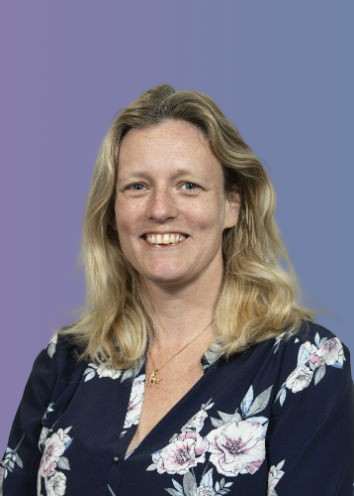
Prof. Helen Walden
University of Glasgow, Scotland, UK
Prof. Helen Walden obtained her BSc in Biochemistry from the University of Bath in 1998. She then moved to the University of St Andrews for her PhD, investigating the structural basis of protein hyperthermostability. In 2001, she moved to Memphis, Tennessee for a postdoc in the newly established lab of Brenda Schulman at St Jude's Children's Research Hospital. It was here that Helen developed her interest in the mechanisms of ubiquitination, solving the structure of the E1 for Nedd8. Helen was a member of the EMBO Young Investigator Programme from 2011 to 2014 and received the Colworth medal from the Biochemical Society in 2015, and in 2016 she received an ERC Consolidator award. In recent years, her lab has defined the molecular basis both of specific E2 selection, and how non-selective broad-spectrum E2 use is achieved. Her lab has determined the mechanism of regulation of Parkin via autoinhibition and established the molecular basis for activation. Their detailed understanding of the specificity in the Fanconi Anaemia pathway has allowed them to begin developing small molecules to target the pathway. know more
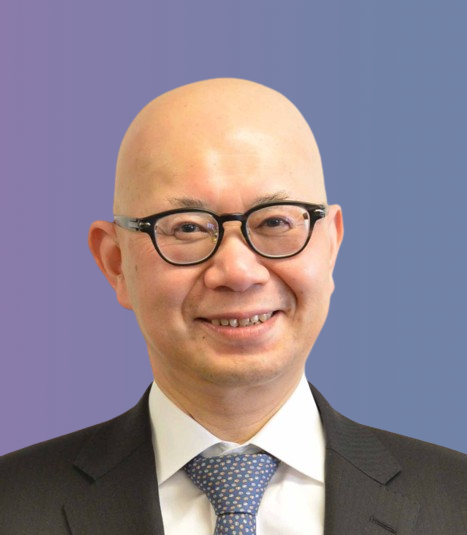
Prof. Kazuhiro Iwai
Graduate School of Medicine, Kyoto University, Japan
Prof. Kazuhiro Iwai is a prominent biomedical scientist known for his significant contributions to understanding linear ubiquitination and its role in NF-κB signaling. He is a professor at the Department of Molecular and Cellular Physiology at Kyoto University's Graduate School of Medicine. Dr. Iwai's research has notably focused on the linear ubiquitin chain assembly complex (LUBAC), a critical regulator of immune and inflammatory responses. His work has elucidated the mechanisms by which linear ubiquitination controls NF-κB activation and protects cells from apoptosis, which has broad implications for understanding inflammation and immunity. Throughout his career, Dr. Iwai has received numerous awards, including the 2021 Japan Academy Prize for his groundbreaking discovery of linear ubiquitin chains and their role in inflammation.know more
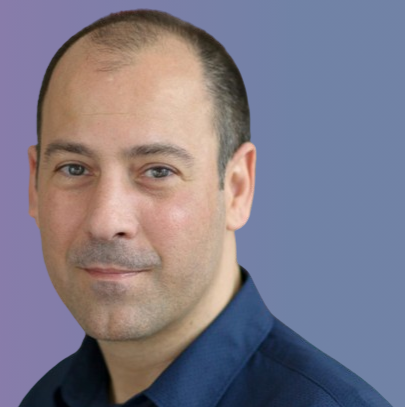
Prof. Christopher D. Lima
Sloan Kettering Institute/HHMI New York, USA
Prof. Christopher D. Lima completed his Bachelor of Arts degree in biochemistry from Ohio State University in 1989 and his Ph.D. in biochemistry and biophysics from Northwestern University. Following this, he studied as a Helen Hay Whitney Fellow at Columbia University under the guidance of Wayne Hendrickson. He is currently Chair and Member at the Sloan Kettering Institute of Memorial Sloan Kettering Cancer Center and an Investigator of the Howard Hughes Medical Institute. The Lima lab studies the structural, biochemical, and functional basis for macromolecules involved in post-translational protein modification by SUMO, a ubiquitin-like protein modifier, and pathways that contribute to co-transcriptional RNA maturation and post-transcriptional RNA decay. In addition to their structural studies, their main areas of interest focus on how these pathways contribute to signaling, cell cycle control, nuclear localization, and control of RNA metabolism.know more
.png)
Prof. Ashraf Brik
Faculty of Chemistry, Technion – IIT, Haifa, Israel
Ashraf Brik is a professor at the Schulich Faculty of Chemistry at the Technion Institute of Technology, Israel. His laboratory specializes in developing novel synthetic approaches to chemically synthesize homogenous posttranslationally modified proteins, such as ubiquitinated and phosphorylated proteins, for structural, biochemical, biophysical and functional analyses. In addition, Prof. Brik’s lab is also engaged in developing novel modulators based on small molecules, peptides and peptidomimetics for various enzymes (e.g. deubiquitinases) to study their function and inhibition and contribute to human health. Research in the Brik Lab is funded by several international and local funding agencies such as the Israel Science Foundation (ISF), the US-Israel Binational Science Foundation (BSF), German-Israel Foundation (GIF) and advanced European Research Council (ERC). know more
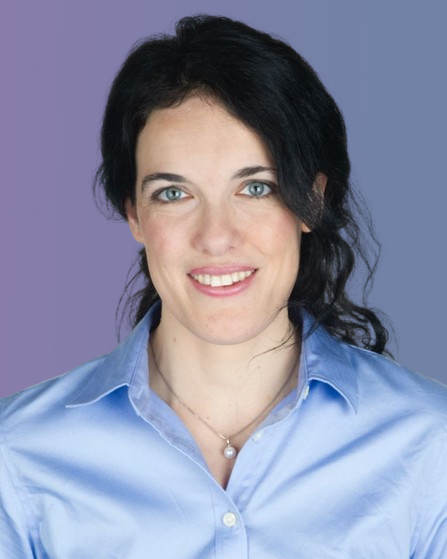
Dr. Sonja Lorenz
Max Planck Institute for Multidisciplinary Sciences, Göttingen, Germany
Dr. Sonja Lorenz is an accomplished biochemist with a notable career in studying the ubiquitin system. She began her academic journey with a Diploma in Biochemistry from the University of Regensburg in 2003. Following this, she pursued her Ph.D. at the University of Oxford, where she worked in the laboratories of Iain D. Campbell and Martin Noble. Post-Ph.D., Dr. Lorenz moved to the University of California, Berkeley, as a Leukemia & Lymphoma Society Career Development Fellow in John Kuriyan's lab. Her research there focused on the ubiquitin system, specifically how the anaphase-promoting complex (APC/C) achieves specificity in ubiquitin chain formation. In 2014, Dr. Lorenz became an Emmy Noether Group Leader at the Rudolf Virchow Center for Experimental Biomedicine at the University of Würzburg. In 2021, she relocated her lab to the Max Planck Institute for Biophysical Chemistry in Göttingen, where she continues her research on ubiquitin signaling specificity. Her current work involves studying the structural mechanisms of ubiquitin ligases, their roles in diseases, and their potential as therapeutic targets.know more

Prof. Yogesh Kulathu
MRC-PPU, University of Dundee, Scottland, UK
Prof. Yogesh Kulathu graduated with a Bachelor’s degree in Chemical Engineering in 2000 from Birla Institute of Technology and Science (BITS), Pilani, India. He then went on to do a PhD in Immunology at the Max Planck Institute of Immunobiology and University of Freiburg in Germany under the supervision of Prof. Michael Reth, where he worked on B cell antigen receptor signalling and protein tyrosine kinase regulation. He was awarded a Marie Curie Intra-European Fellowship and an EMBO Long term fellowship to work on the structural basis driving linkage specificity in ubiquitin binding domains and in the ovarian tumour family of deubiquitinases. In February 2013, Prof. Kulathu relocated to the MRC PPU to establish his research program, focussing on ubiquitin signalling mechanisms. His research focusses on the mechanisms by which cells maintain protein homeostasis. His group has pioneered in discovering the fifth Deubiquitinase (DUB) family called – MINDY family of K48-specific deubiquitinases. In 2015 Prof. Yogesh Kulathu received a prestigious ERC Starting Grant to investigate the function of ubiquitin and ubiquitin-like modifiers regulating T lymphocyte biology. He was selected as a EMBO Young Investigator in 2015. Yogesh is a recipient of the Lister Prize in 2017 from the Lister Institute of Preventive Medicine. In 2021 he received an ERC Consolidator Grant to investigate how branched ubiquitin signals function as priority signals in cellular stress responses. know more
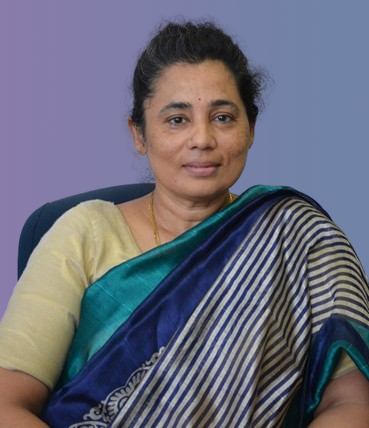
Prasanna Venkatraman
Advanced Centre for Treatment, Research and Education in Cancer (ACTREC), Tata Memorial Centre, Navi Mumbai, India
Dr. Prasanna Venkatraman is a deputy director at the Advanced Centre for Treatment, Research, and Education in Cancer (ACTREC) under the Tata Memorial Centre in Mumbai, India. With a Ph.D. from the Indian Institute of Science in Bangalore with Prof. P Balaram, she has focused her research on protein-protein interactions, particularly how these interactions can be manipulated to expose vulnerabilities in cancer cells. Dr. Venkatraman received her Proteostasis & Proteasome research experiences in Prof. Alfred Goldberg’s Lab at Harvard Medical School. After she joined ACTREC-TMC in 2006, her research focuses in understanding the cellular homeostasis, protein synthesis, folding, function, and degradation. Her lab is notably interested in the structural and mechanistic aspects of protein degradation by proteasomes and the role of the 14-3-3 zeta protein as a molecular chaperone. know more
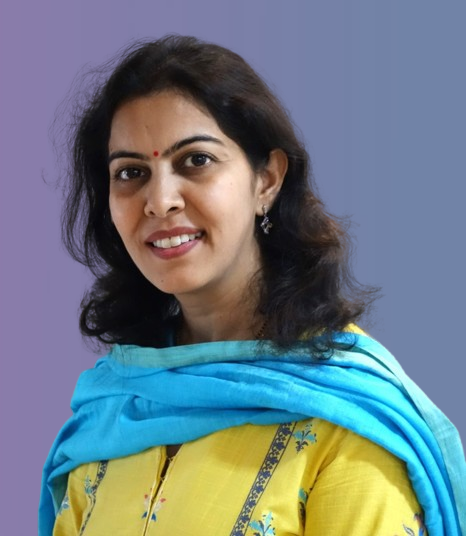
Dr. Parul Mishra
University of Hyderabad, Hyderabad, India
Dr. Parul Mishra received her Master’s degree in Biochemistry from the Lucknow University. She did her PhD at the Central Drug Research Institute (CDRI-JNU) where she was trained in biophysical and biochemical characterization of proteins. She did her postdoctoral training in directed evolution and analysing protein fitness landscapes with Daniel Bolon at the University of Massachusetts Chan Medical School, USA. She employed high throughput mutational approaches and protein engineering to delineate critical aspects of Hsp90 function and evolution. As an independent faculty at the University of Hyderabad, her research interests include rewiring the protein homeostasis network; particularly the chaperones and ubiquitin network to ameliorate the burden of misfolded or aggregated proteins in cells during neurodegeneration. She is also interested in developing synthetic yeast strains for enhanced production of industrially important metabolites. know more
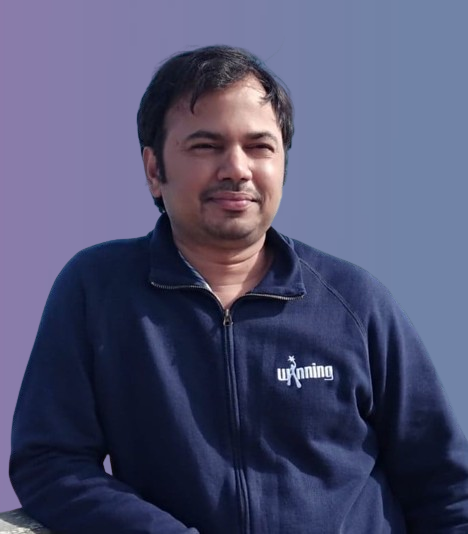
Dr. Atul Kumar
Indian Institute of Science Education & Research, IISER, Bhopal, India
Dr. Atul Kumar is an Assistant Professor in the Department of Biological Sciences at the Indian Institute of Science Education and Research (IISER), Bhopal. He is involved in research focusing on structural biology, particularly utilizing X-ray diffraction techniques to study protein structures. Dr. Kumar completed his postdoctoral work at the National Institutes of Health (NIH) in the USA, where he was part of the Sensory Cell Regeneration and Development Section. Before joining IISER Bhopal in 2019, he also served as a postdoctoral fellow at the MRC- Protein Phosphorylation and ubiquitination Unit, University of Dundee. In addition to his research and teaching duties, Dr. Kumar manages the Protein X-ray Diffraction (XRD) facility at IISER Bhopal, contributing significantly to the structural biology research infrastructure at the institute.know more
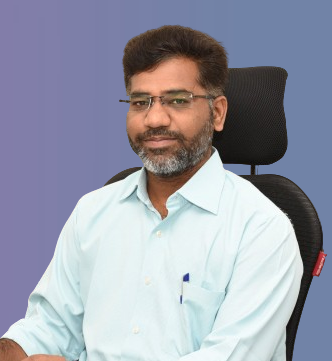
Dr. Maddika Subba Reddy
Centre for DNA fingerprinting & Diagnosis, (CDFD), Hyderabad, India
Dr. Maddika Subba Reddy obtained his PhD in the field of Cell Biology from University of Manitoba, Canada. He subsequently moved to Yale University, USA for his post-doctoral work in the laboratory of Prof. Junjie Chen. He moved back to India in 2009 to start his own group at the Centre for DNA Fingerprinting and Diagnostics (CDFD). Dr. Maddika Subba Reddy is leading an independent group at CDFD, where research in his lab (Laboratory of Cell Death and Cell Survival) is focused on exploring the functional protein interaction networks controlled by phosphatase and ubiquitin systems. His group is interested in identifying new protein complexes responsible for normal functioning of the cell as well as human diseases. His lab has mapped several new functions for the components of phosphatase and ubiquitin systems in human cells.know more
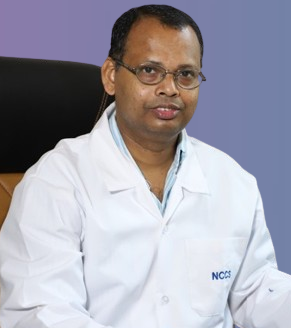
Dr. Manas Santara
National Centre for Cell Sciences, Pune, India
Dr. Manas Kumar Santra is a notable scientist based at the National Centre for Cell Science (NCCS) in Pune, India. He completed his undergraduate and master’s degrees in chemistry at Vidyasagar University in 1996 and 1998, respectively. He then earned an MTech and a PhD from the Indian Institute of Technology, Mumbai in 2001 and 2006. Following his doctoral studies, he conducted postdoctoral research at the University of Massachusetts Medical School from 2006 to 2010. In 2010, Santra joined the NCCS as a Scientist D, where he has made significant contributions to the field of Biology of Cancer and chronic Diseases, Genome Architecture and Regulation. Specifically his lab is focusing on gene regulation by RING finger E3 ubiquitin ligases, understanding the role of epigenetic gene regulation in cancer and Identification and elucidation of the role of Protein Phosphatase 1 regulatory subunits in Cancer. For his outstanding work, he was awarded the National Bioscience Award for Career Development by the Government of India in 2017-18.know more

Dr. Santosh Chauhan
Centre for cellular & Molecular Biology (CCMB), Hyderabad, India
Dr. Santosh Chauhan has received his bachelor’s degree from Rajrishi college Alwar, Rajasthan and Master’s degree from Guru Nanak Dev University, Amritsar, India. He obtained his Ph.D under supervision of Dr. J S Tyagi at All India Institute of Medical Sciences, New Delhi focusing on transcriptional regulation in Mycobacterium tuberculosis. After completion of the Ph.D. in 2009, Dr. Santosh Chauhan joined the laboratory of Dr. Douglas Boyd in the Department of Cancer Biology at the MD Anderson Cancer Center (MDACC), Houston, US and worked on autophagy and cancer. His second postdoctoral fellowship was under the guidance of Dr. Vojo Deretic at University of New Mexico, US. In Sept. 2015, Dr. Chauhan joined as a faculty at Institute of life Science, Bhubaneswar, Odisha and then, he moved to CSIR- Centre for Cellular and Molecular Biology (CCMB), Hyderabad, Telangana, India in Sept. 2022. He is one of the leading scientists in the field of Autophagy and established several signaling pathways for cell death and apoptosis. He has been awarded with many prestigious awards including Wellcome-DBT intermediate fellowship in 2015, EMBO Global Investigator Fellowship, S Ramachandran-National Bioscience Award for Career Development- DBT, India in 2019, Fellow of National Academy of Sciences (NASI) in 2020, NASI-SCOPUS Young Scientist Award in 2022, Fellow of Indian Academy of Sciences (IASc) in 2023, and SUNPHARMA Research Award in 2023. His research work primarily focuses on areas like Autophagy and Inflammation, Innate Immune Responses, Anti-Viral and Anti-Bacterial Immune Responses, Mechanisms of Cancer Progression and Cancer Immunity.know more
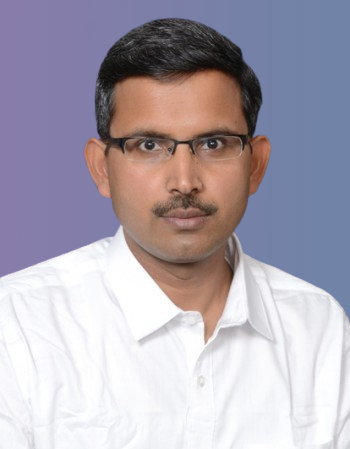
Dr Shravan Kumar Mishra
Indian Institute of Science Education & Research, IISER, Bhopal, India
Dr Shravan Kumar Mishra received his Master of Science (MSc) in Biotechnology at the MS University of Baroda, India. Then he joined the laboratory of Lutz Nover at the Goethe University of Frankfurt, Germany, and got PhD degree in early 2004. Afterwards for his post-doctoral research, Dr Mishra joined the laboratory of Stefan Jentsch at the Max Planck Institute of Biochemistry in Martinsried, Germany where he worked in the field of ubiquitin biology and studied the ubiquitin-like protein Hub1 and discovered that Hub1 promotes splice-site usage and alternative splicing. In early 2012, he joined the department of biological sciences at the Indian Institute of Science Education and Research (IISER) Mohali, India, as a teacher and research group leader. His research group studies function and regulation of proteins related to ubiquitin in pre-mRNA splicing using yeasts S. cerevisiae and S. pombe. they discovered that intron-specific pre-mRNA splicing is promoted by a ubiquitin-fold containing Sde2 in S. pombe. In this process, excision of selected introns requires activation of Sde2 through cleavage by deubiquitinating enzyme (DUB) paralogs, Ubp5 and Ubp15. The dual activity of these DUBs for ubiquitin and the ubiquitin-fold of Sde2, suggests that the two processes—processing of the archetypal ubiquitin for conjugation to proteins and cleavage of a distant ubiquitin fold for activation of an intron-specific pre-mRNA splicing regulator—might be connected in the cell.know more
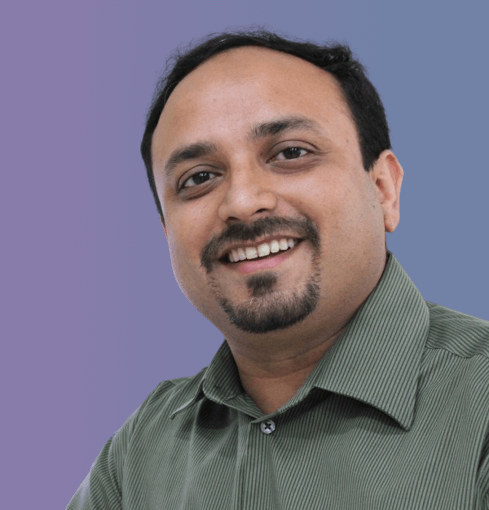
Dr. Ranabir Das
National Centre for biological Sciences (NCBS), Bangalore, India